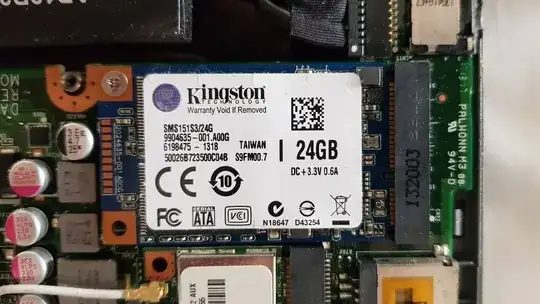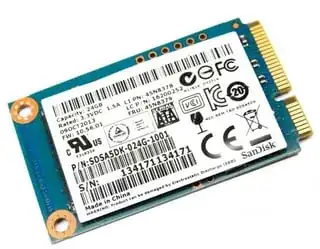I have a very old laptop that was state of the art when originally released, back when SSDs were starting to enter the consumer market. When I bought mine, it was advertised as a 500 GB SSD Ultrabook, but it was always too slow to actually be an SSD.
I've finally decided to open it to see if my atrocious network card could be replaced and it turns out there was an SSD all along! It's a 24 GB SSD drive most likely to be used for fast booting (which surprises me because the boot partition had never been there to begin with):
However, I don't know what this type of SSD is called. I would like to replace it but nowadays SSDs are longer than this one (which is about 5 x 2.5 cm) and the capacitors on the left prevent me from using them.
So is there a specific way to refer to these SSDs? Are they still being sold today?
Is it preferable to have a larger SSD in its place or should I simply remove this drive and aim to replace the HDD with a SATA SSD?

